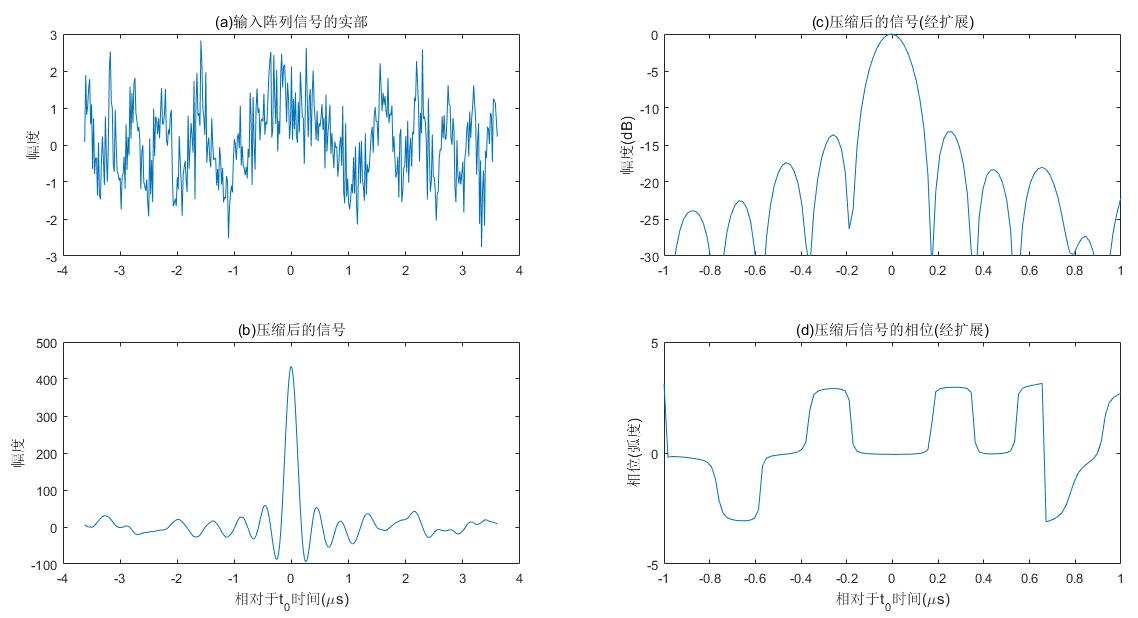版权声明:本文为博主原创文章,未经博主允许不得转载。 https://blog.csdn.net/Destiny0321/article/details/53219331
加入0.75倍的高斯噪声后,信号实部波形已经凌乱,从波形中已无法判断这是哪一种信号,但脉冲压缩的性能几乎不受影响,说明脉冲压缩抗噪能力强。
% SAR_Figure_3_7
% 2016.08.31
close all;clear all;clc
T = 7.24e-6; % 信号持续时间
B = 5.8e6; % 信号带宽
K = B/T; % 调频率
ratio = 10; % 过采样率
Fs = ratio*B; % 采样频率
dt = 1/Fs; % 采样间隔
N = ceil(T/dt); % 采样点数
t = ((0:N-1)-N/2)/N*T; % 时间轴
st = exp(1i*pi*K*t.^2)+0.75*randn(1,N); % 生成带有高斯噪声的信号
ht = exp(-1i*pi*K*t.^2); % 匹配滤波器
out = fftshift(ifft(fft(st).*fft(ht))); % 计算循环卷积
Z = abs(out);
Z = Z/max(Z);
Z = 20*log10(eps+Z);
figure,set(gcf,'Color','w');
subplot(2,2,1),plot(t*1e6,real(st));
title('(a)输入阵列信号的实部');ylabel('幅度');
subplot(2,2,2),plot(t*1e6,Z);axis([-1 1 -30 0]);
title('(c)压缩后的信号(经扩展)'),ylabel('幅度(dB)');
subplot(2,2,3),plot(t*1e6,out);
title('(b)压缩后的信号'),xlabel('相对于t_{0}时间(\mus)'),ylabel('幅度');
subplot(2,2,4),plot(t*1e6,angle(out));axis([-1 1 -5 5]);
title('(d)压缩后信号的相位(经扩展)'),xlabel('相对于t_{0}时间(\mus)'),ylabel('相位(弧度)');